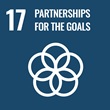
Project information
Structure, biology and medical potential of blood plasma-derived ultra-short cell-free DNA
- Project Identification
- GF22-04242L
- Project Period
- 10/2022 - 9/2025
- Investor / Pogramme / Project type
-
Czech Science Foundation
- LA Grants
- Partner Agency (Germany)
- MU Faculty or unit
- Central European Institute of Technology
- Cooperating Organization
-
Center for Molecular Medicine Cologne, University Hospital Cologne, University of Cologne
Fragments of DNA are constantly being released into the human blood circulation following cell death and by active secretion. The fragmentation of cell-free DNA (cfDNA) in blood plasma reflects its tissue of origin and mechanisms of release into the circulation. We established a novel method that enabled us to capture single-stranded ultra-short cfDNA (US cfDNA, ~50 nt) from blood plasma. We found that US cfDNA has its origin upstream of accessible transcription start sites. We observed that these sites are only enriched in US cfDNA when they contain the potential to adopt G-quadruplex and/or i-motif structures. Importantly, our data revealed that the US cfDNA fragments in healthy individuals are significantly more enriched in G4 sequences relative to cfDNA in cancer patients suggesting that US cfDNA have a specific role in cancer physiology. Although relationships of US cfDNA to disease is unknown, exploring alternative structural arrangements contained in ssDNA could improve our understanding of cfDNA biology leading to further opportunities to develop novel diagnostic strategies.
Sustainable Development Goals
Masaryk University is committed to the UN Sustainable Development Goals, which aim to improve the conditions and quality of life on our planet by 2030.
Publications
Total number of publications: 3
2025
-
Hyperpolarized NMR Reveals Low-Populated Folding Intermediates in DNA
JOURNAL OF THE AMERICAN CHEMICAL SOCIETY, year: 2025, volume: 147, edition: 50, DOI
-
In-cell NMR spectroscopy of nucleic acids: Basic concepts, practical aspects, and applications
Progress in Nuclear Magnetic Resonance Spectroscopy, year: 2025, volume: 148-149, edition: August-October, DOI
2024
-
RNA G-quadruplex formation in biologically important transcribed regions: can two-tetrad intramolecular RNA quadruplexes be formed?
Nucleic Acids Research, year: 2024, volume: 52, edition: 21, DOI


